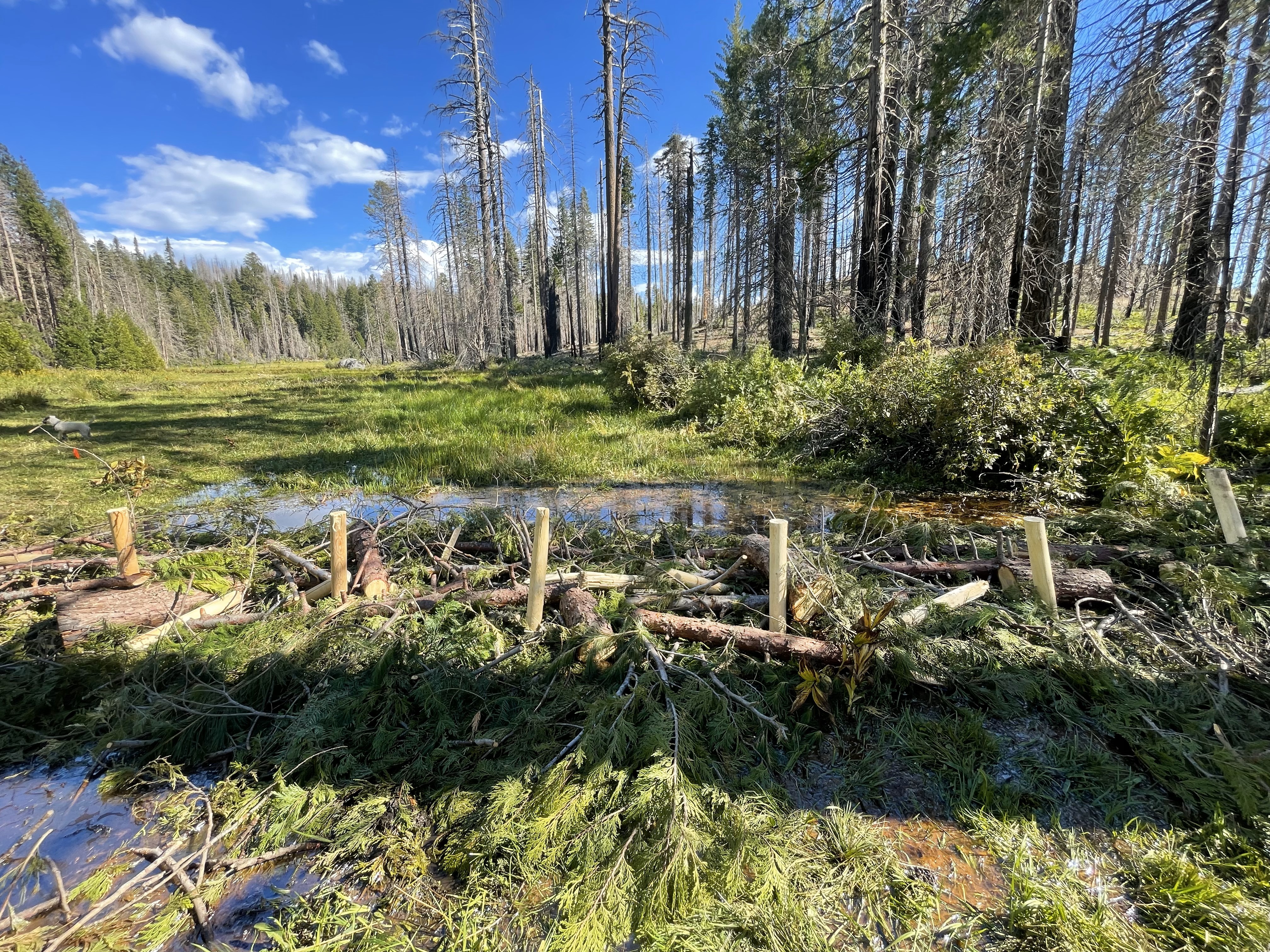Benedict Meadow-Sierra National Forest: Bass lake, 8 Meadows Project
Anabranch Solutions Design and Construction
U.S. Forest Service Partner and Design
Trout Unlimited Funding and Coordination
Benedict Meadow
San Joaquin Basin: Sub-watershed North Fork Willow Creek
Jun. 12, 2023
300
29
Project Goals and Objectives
Meadows within the Sierra National Forest provide unique and important habitat to several species of plants and animals and provide ecosystem services such as water and sediment storage, and resiliency to floods and fire. Anthropogenic impacts over the last two centuries have led to gully formations and channel incision which has led to the draining and degradation of these Meadows. Benedict meadow is an active cattle grazing site. Though the impact of grazing was not as apparent as other meadows we worked in, a small channel was identified at the bottom of the meadow with a high gradient, and a large secondary channel was found in the adjacent forest that was severally incised. Our main objective was to increase channel aggradation in both channels and subsequently raise the water table within the meadow. Removing encroaching confers and increasing meadow species was also a goal.
Structure Construction Elements
BDAs were constructed as a complex to encourage channel aggradation in the small channel at the bottom of the meadow and raise the water table within the meadow. As the gradient decreased leading upstream to the meadow, larger PALS were implemented to disperse flow across the inset floodplain and support a sheet flow regime. As for the secondary channel, BDAs were implemented to promote channel aggradation, and large PALS were created where naturally occurring structures were already present. PALS and BDAs were also implemented where a large aggraded structure naturally existed in order to protect and continue to increase aggradation. Structures ranged in width from 1.5 to 35.6 m and had crest heights between 0.35 to 1.25 m. Posts were used within our BDA complexes and in structures of high priority. Materials used were products of the Sierra National Forest thinning project conducted by the Mono Tribe.
Project Photos

Cover Photo

.png)
